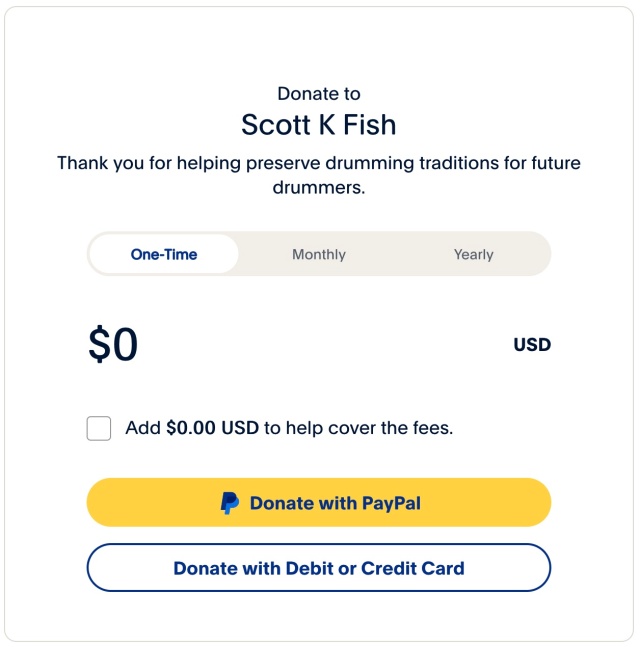
SKF NOTE: Here’s the back story on my interviews with Joe English which began in 1980 and concluded years later. During his music career Joe played with some excellent bands — including his own. But he is perhaps best known for the music he made playing drums with Paul McCartney and Wings.
I’ve isolated from the full interviews Joe’s comments about his time with Paul McCartney. From his audition until Joe chose to leave the band and move back permanently to the United States.
Mostly this Q&A is verbatim. In a few brief spots our conversation veered away from McCartney and Wings. For clarity I’ve edited out those sidetracked moments. This excerpt begins with Joe answering my question about joining the band, “Was it an audition?”
Finally, I decided to post Joe’s recollections in two parts.
=====
Joe English: No audition. Tony Dorsey met me in Nashville. He was with McCartney at Allen Toussaint’s studio, Sea-Saint. He said, “Man, I want you to have this gig.”
I said, “Tony, I don’t know the material.” And then I went right into a recording situation — which I hadn’t hardly been doing any of.
Tony said, “Don’t worry. You just watch me.” He was the arranger and was sort of directing the date. He stood in front of the drum booth and gave me every cue: when to stop, when to hit accents.
Scott K Fish: There were no [drum] charts?
JE: I didn’t read. We went ahead and did it and I guess my concept of playing was different. McCartney liked it and it jelled. So we went to New Orleans, and then to Los Angeles, to mix the album at Wally Heider [Studios]. And McCartney asked me to join the band.
That didn’t take much thought. I said, “Yes sir. I’ll take the job.”
I eventually had an apartment over in London. I was going back-and-forth, spending some time over there and some time at home.
When I moved to England we started to get into some heavy recording. The on-the-scene experience and the skill I got in recording with McCartney — hour upon hour, into the early morning, working at the board with him, recording and learning recording techniques — that was really fun. I couldn’t have asked for a better guy to work with for learning what songs are about, and learning what recording in the studio is about.
SKF: Was Wings like a real band situation? Or was it actually still Paul McCartney and his band?
JE: Well, I just came in on the first album. So I was sort of following. That was the Venus and Mars. From Wings at the Speed of Sound on out it was like we could have contributed as much as we wanted. I mean, I could have recorded my tracks and then just hung out in the hall and drank coffee.
On Wings at the Speed of Sound we mixed tunes where everybody had a fader at the board. It was a real band situation. It wasn’t like, “Hey, I’m Paul McCartney. I know more than you.” It wasn’t like that. If people had good suggestions it was used.
It was a real learning experience just to be in that situation. Working at Abbey Road with good engineers, actually watching the recording process go down. I soaked in as much as possible.
To this day, when I’m in the studio getting into some production stuff, some things will come out that I’d learned back then and forgotten about. I couldn’t even put a dollar value on what that experience was worth.
SKF: What did you think when you heard playback of yourself that first recording session in Nashville?
JE: I was pretty excited. I was just doing my job. Alot of people think that Joe English never did anything before Paul McCartney and Wings. I’d been playing years before that. And when I think back, McCartney was always up for getting something different. Alot of the stuff I played on the Wings albums was straight-ahead. But to McCartney, I guess it had just a little different edge.
I guess playing with Jaimo and living out in the country did something for my playing.
To hear it played back was nice. It was a feeling that I was moving forward in the music business all of a sudden. I just went purely for what I felt was needed at the moment. I guess what I felt the songs needed was sort of what McCartney was thinking they needed — because I got the job.
I guess that is a good way to check a guy out. Put him under pressure. It’s sort of like they wanted to see if that horse could run.
When I left Wings it was on a good note. We’re still friends right now. We don’t see each other. But every time I go over to England I call Paul and see him.
But I just could not give up the States. It’s the same thing with McCartney. You don’t see him moving over here.
I just thought I could do it in two places. That sort of wore thin after awhile.
To be continued….


You must be logged in to post a comment.